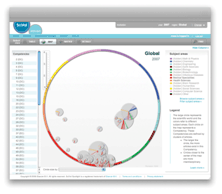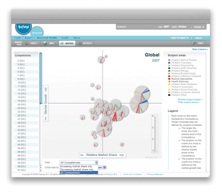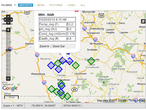Here is what comes up on Phi Beta Iota, followed by additional “human in the loop” suggestions.
Review : Global Shift–How A New Worldview Is Transforming Humanity
Here is what you were probably looking for:
Mapping community values for natural capital and ecosystem services
A couple more links we like (remember, US still does not have 1:50,000 charts for 90% of the world):
Mapping Communities: Ethics, Values, Practice (PDF, 2005)
Understanding Your Audience and Your Community – Mapping Software that Reveals Key Characteristics (HTML, 2008)
Good practices in participatory mapping (PDF, 2009)
Community-mapping projects for sustainability (HTML, 2009)
Community Asset Mapping (HTML, 2010)
Amazon Links:
Value-Stream Mapping Books (focus on business process value mapping)
See Also:






